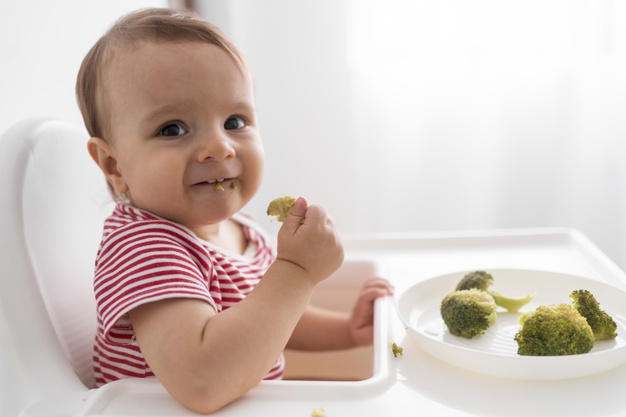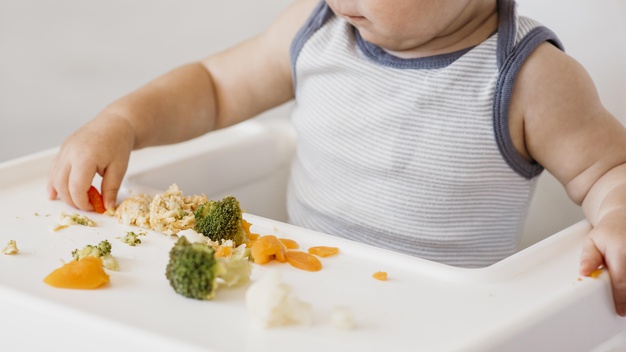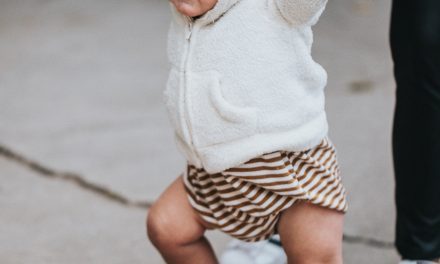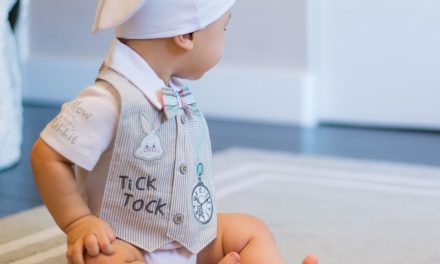As appealing as it is to include new foods in your little one’s diet when you start solids, some things should stay away from the table for the first year. Few foods act as a choking hazard to new eaters, while others are not suited for the little ones. Here’s a quick guide to the 5 foods that babies should avoid, with instructions for when they are harmless to include in their diet.
Honey
Honey (or foods containing honey) is off-limits but is one of the lesser-known foods that babies should avoid. This is because it may comprise the bacteria Clostridium Botulinum’s spores. Although simply harmless to grown-ups, these spores can cause infant botulism in infants under one year of age. This severe but seldom deadly sickness might cause constipation, reduced sucking, bad appetite, laziness, and even pneumonitis and dehydration. So, it might be best to wait till the baby’s first birthday to serve your little honey a few drops of honey.
Cow’s Milk
As great it is for a big body, babies under one year should stay away from cow’s milk as it is hard for infants to digest. Babies need nutrients like iron and vitamin E to grow and develop during the first year. These are not present in cow’s milk. This is why breast or formula is the most suitable milk source.

Sugary Treats
Baby taste buds possess an innate inclination for sugar, yet they are also more open at this age to different flavors. They could be sharp, tangy, tart, or sour, but your baby will take to them only if you introduce them.
There’s absolutely no need to ban naturally sugary baby preferences like bananas as they serve up the desired nutrients. Make sure to avoid sweetening everything the baby eats with fruit as you’re developing your baby’s flavor foundations. This can also lead to baby bottle tooth decay. You might want to keep sweet treats off the table, at least till the time your baby is one. Remember, especially chocolates (because it contains caffeine) and hard candies!
Unpasteurized Foods
This may seem like stating the obvious, but some parents may not realize that anything unpasteurized is one of the foods that babies should avoid. You should never serve your child raw or uncooked dairy products and meat, alongside cider, juice, etc. They can carry dangerous bacteria, ultimately causing life-threatening diseases in infants and toddlers.
Refined Grains
Whole grains are generously high in fiber, which rolls up their sleeves to keep the blood sugar steady. So remember to keep the refined grains like white bread away from the list and choose 100 percent whole grain products like pasta and cereal at the departmental store.
Starting this practice early and making it a habit will encourage your little one to make more intelligent food choices later in life.
Conclusion
Due to a choking danger, make sure you avoid giving your kid foods that won’t melt in the mouth, is difficult to mash with the gums, or are easily sucked by the windpipe. These could include uncooked raisins, whole grapes, chunks of meat or poultry, popcorn, chewing gum, etc. Also, withdraw whole nuts because they can cause a choking risk before the age of four. Alternatively, begin with smooth nut spreads, cheese, and butter. If you’re still worried about the foods babies should avoid, ensure you speak with your pediatrician. You can also keep track of their diet with ImmunifyMe‘s nutrition planner on the app.
FAQs On Foods That Babies Should Avoid
What Is The Most Dangerous Food For Kids?
Any foods that can be choking hazards for kids are dangerous foods for them. These include whole grapes, cherries, nuts, popcorn, cheese cubes and chewing gum.
What Should You Not Give To Kids?
Kids should not have sugar in excess as it leads to tooth decay and an alteration in their taste palette. They should also avoid hard, gooey or sticky candy, peanuts and chunks of peanut butter. Lastly, choking hazards and foods they’re allergic to need to be kept away from children.
What To Do If A Child Is Choking On Popcorn?
If a child is choking, you must perform the Heimlich maneuver on them – stand behind them, clasp your fists between the navel and below the bottom of the breastbone. Give quick thrusts inward and upward until the airway is clear or they become unconscious. If the child is a toddler, lay them on the floor and give them 5 rapid compressions over the lower third of the breastbone, but only with two fingers. Keep alternating between back and chest blows.






